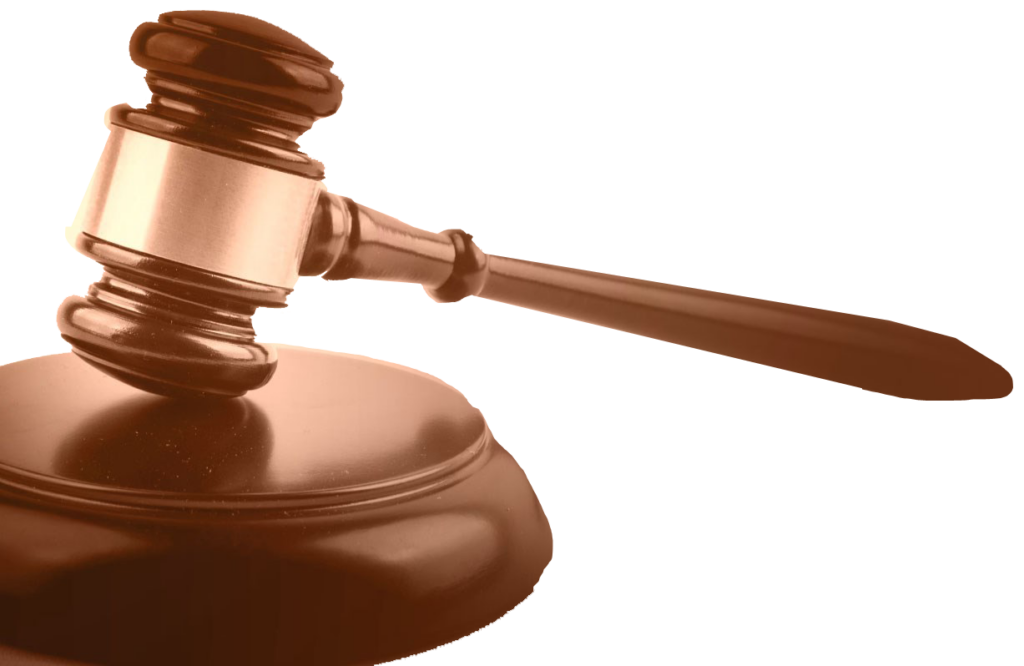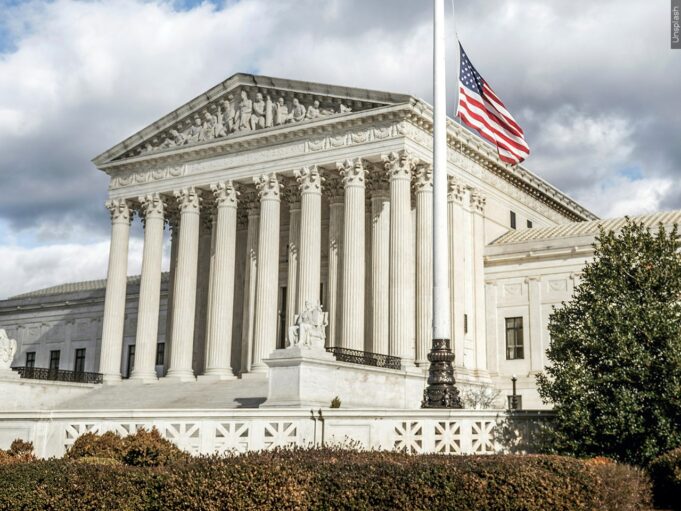by Brenda Baletti, Ph.D. The Defender
This article was published on The Defender—Children’s Health Defense News & Views Website on October 2, 2024
A mother and her 9-year-old daughter, whose school forced her to comply with a COVID-19 mask mandate even though she has asthma, are petitioning the U.S. Supreme Court to hear their case after a lower court partially dismissed it in April.
Plaintiffs Jane and Sarah Doe allege the Franklin Square Union Free School District in Long Island, New York, violated Sarah’s constitutional rights by wrongfully denying her a mask exemption.
The school denied repeated requests by Sarah’s mother and pediatrician for a medical exemption, despite evidence the mandate severely harmed Sarah, the petition alleges.
Jane and Sarah sued the school district in September 2021, and filed an amended complaint in January 2022. A district court dismissed the complaint in March 2023.

On April 25, 2024, the 2nd Circuit U.S. Court of Appeals reversed part of that dismissal, allowing the lower court to consider allegations that the school violated the Americans with Disabilities Act (ADA) and Section 504 of the Rehabilitation Act of 1973.
However, the 2nd Circuit upheld the district court’s decision to dismiss the constitutional claims.
The disability claims are proceeding through the lower courts. Meanwhile, the plaintiffs are asking the Supreme Court to weigh in on the “immense nationwide significance” of the constitutional issues.
The petition asks:
“Is there a fundamental right to medical exemption from public health mandates that may place a child at serious risk of harm?
“Alternatively, can the government deny medical exemption requests, compelling vulnerable children to undergo medical interventions against medical advice, without the obligation to demonstrate that such denials serve a compelling state interest?”
The plaintiffs are represented by Sujata Gibson, who also represented teachers and healthcare workers fired for refusing to take the COVID-19 vaccine, and by attorneys Mary Holland, who is also CEO of Children’s Health Defense (CHD), and Kim Mack Rosenberg, CHD general counsel.
Gibson told The Defender that it became evident during the COVID-19 pandemic that “some states empowered themselves to reject medical exemptions to vaccines or masks or any kind of politicized intervention without any real scientific basis for doing so.”
As a result, she said, “Children have become very vulnerable to the whims of unqualified school administrators who disagree with the child’s doctor, often based on a misunderstanding of what they heard on the news or read in a generalized Google search.”
In their petition, the attorneys argue that the issues at stake are of national significance, related to what Gibson said is “probably the most fundamental right we have, which is to protect ourselves and our children from harm.”
According to the petition:
“While it is understandable that the lower courts acted with caution during an emergency, it is now vital for them to recognize the profound injuries inflicted by granting government actors carte blanche authority to infringe upon our most sacred fundamental rights.
“Sarah Doe is not alone; countless children will endure the long-term consequences of this lack of accountability.”
School employees ‘mocked her, punished her, and even filmed her’ petition alleges
Sarah has several health issues, including asthma and anxiety, which make her unable to tolerate prolonged mask use, according to the petition.
When the New York State Department of Health in fall 2020 began instituting various temporary mask mandates in schools, they provided exemptions for students who couldn’t medically tolerate them.
Sarah’s mother made several attempts, with the support of Sarah’s lifelong pediatrician, to secure an exemption for Sarah. However, the school district denied all of them, claiming they had a “no accommodation” policy, according to the petition.
The district refused to allow Sarah to participate in virtual learning. When her family threatened a lawsuit, the district had its own doctor, who never examined Sarah, confirm that she did not need an exemption.
Sarah’s mother submitted an affidavit to a lower court detailing the severity of Sarah’s deteriorating health. When the court indicated it might impose an injunction on the exception refusal, the school district agreed to allow her to wear a “mesh mask” as a temporary accommodation.
The mesh mask provided some relief, but it caused Sarah to suffer fungal infections. She continued to experience difficulty breathing and panic attacks when wearing it.
No public health agency has said that mesh masks offer protection against COVID-19.
“Although the School District acknowledged that the mesh mask provided no protective benefit —essentially serving only as a costume—it refused to allow Sarah to stop wearing it when it became clear that the mesh mask was insufficient,” according to the petition.
School officials knew mesh masks had no public health benefit, so there was no rational reason for them to prohibit Sarah from removing it. Instead, employees “mocked her, punished her, and even filmed her as she desperately sought refuge in a corner to lower her mask and catch her breath.”
“This was a happy and well-adjusted little girl who had some physical challenges but was making the most of it and who really loved school and loved her friends,” Gibson said. “Now she is scared to go to school and has an eating disorder that’s going to plague her for life.”
Sarah couldn’t breathe, had to use an asthma tent nightly, was having anxiety attacks, became dangerously underweight and her hair started falling out, she added.
‘Fundamental right’ to refuse a medical intervention that could seriously harm a child
The petition argues there is a “fundamental right to refuse a medical intervention that places a child at serious risk of harm.” It also states that it is incumbent on the court to clarify the parameters of this right because it is an ongoing issue in the “era of recurring pandemics.”
“To stop this government overreach, we need a clear decision from the Supreme Court saying there is a fundamental right to a medical exemption from a public health requirement that puts you at risk of harm,” Gibson said.
Sarah’s attorneys argue the court should hear her case to correct the long-term misapplication of the precedent-setting 1905 Jacobson v. Massachusetts ruling, and to resolve an ongoing split in the circuit courts about whether states can mandate an experimental medical product that cannot stop the spread of disease.
Jacobson was a 1905 smallpox vaccine case in which the court found a state may require all residents to take a vaccine if a rational basis exists to determine that such a step is necessary to mitigate a public health emergency.
According to Gibson, courts have misinterpreted Jacobson to mean the courts aren’t obligated to scrutinize whether fundamental rights are violated when public health is at stake.
The Supreme Court itself said, in a concurring opinion written ins 2020 by Justice Neil McGill Gorsuch, that some courts have “mistaken this Court’s modest decision in Jacobson for a towering authority that overshadows the Constitution.”
Gibson also noted that Jacobson was decided decades before international human rights were established and before the courts had established the “tiers of scrutiny framework.”
Under that framework, cases must receive increased scrutiny when they infringe on rights that are deemed fundamental, and the government must show it has a compelling interest to impose its mandate.
The “misapplication of Jacobson became the fountainhead for authorizing wholesale suspensions of constitutional rights” during the COVID-19 outbreak, Sarah’s attorneys wrote in their petition to the Supreme Court.
They said the court should hear this case to “restore Jacobson to its original meaning.”
Case challenges state’s ability to mandate an experimental medical product
By taking on the Sarah and Jane Doe case, the Supreme Court could resolve a split in the circuit courts about whether it is legitimate for a state to mandate an experimental medical product that cannot stop the spread of disease — as many states did during the COVID-19 pandemic.
According to the petition, it is illegal to mandate any product — including masks — under emergency use authorization.
Gibson said the government can’t show a rational basis for mandating an experimental medical product. Under the rational basis argument, the government has to show it has a legitimate basis for infringing on rights.
However, Gibson said, imposing an unwanted experimental treatment on someone is not only a constitutional violation but also violates internationally recognized human rights.
Given that the U.S. Food and Drug Administration continues to allow emergency use authorization of a growing number of unapproved drugs, devices, products and vaccines, it is urgent that the court clarify the extent to which these medical interventions can be mandated, the petition says.
This article was published by The Defender—Children Health Defense News & Views Website under Creative Commons license CCBYNCND 4.4.0













